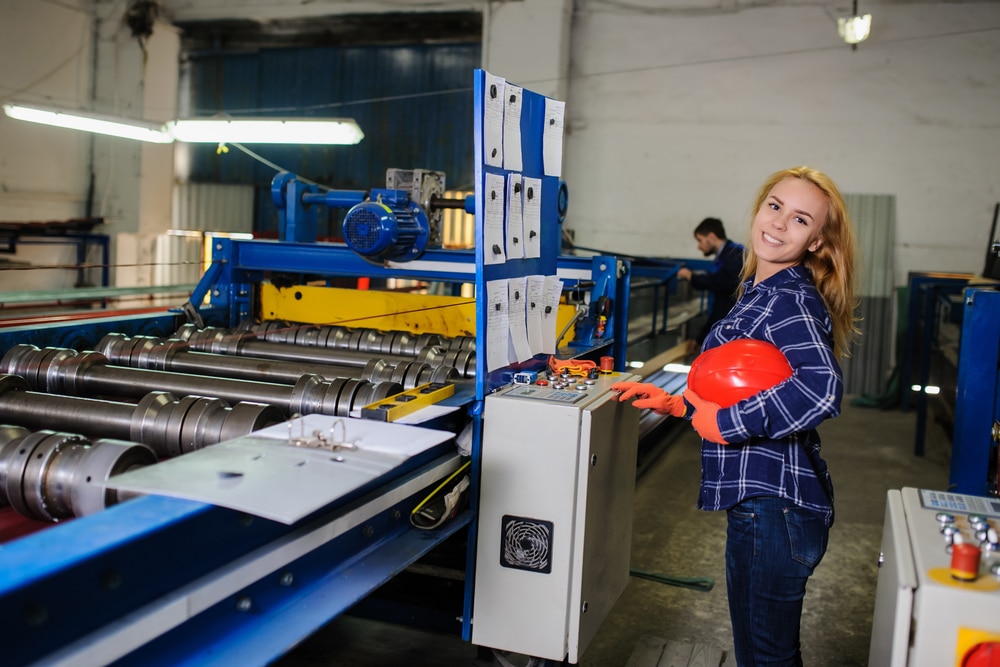In a world where specialization is often highly valued, the concept of a miscellaneous careerpath can seem unconventional. However, this article aims to explore whether is miscellaneous a good career pathto consider. By examining the advantages and disadvantages, we can better understand the potential benefits and challenges that come with this approach. Whether you're someone who embraces change and diversity or prefers a more focused trajectory, this article will help you evaluate if a miscellaneous career is the right fit for you.
Why The Miscellaneous Industry Is A Good Career Path?
The miscellaneous industry can be a good career path for several reasons:
- Versatility and Adaptability -The miscellaneous industry allows professionals to work across various sectors, roles, and projects. This versatility provides opportunities to develop a diverse skill set, adapt to different environments, and thrive in dynamic work settings.
- Creative Opportunities -In the miscellaneous industry, individuals have the chance to explore and combine different interests and talents. This creative freedom enables professionals to think outside the box, innovate, and come up with unique solutions to challenges.
- Continuous Learning and Personal Growth -Pursuing a career in the miscellaneous industry often involves constant learning and self-improvement. As professionals engage with different fields, they acquire new knowledge, gain insights from diverse perspectives, and broaden their horizons. This ongoing personal growth can be highly rewarding.
- Networking and Collaboration -The miscellaneous industry often involves connecting with professionals from various backgrounds and industries. Building a broad network opens doors to collaboration, partnerships, and future opportunities. These connections can lead to new and exciting projects, expanding professional circles, and greater visibility within the industry.
- Job Security and Future-proofing -In a rapidly changing world, the ability to adapt and navigate through different roles and industries can offer a level of job security. By having diverse skills and experiences, professionals in the miscellaneous industry are better equipped to weather economic shifts and technological advancements.
- Work-Life Balance -A career in the miscellaneous industry can provide flexibility and autonomy over one's work schedule. This freedom allows professionals to tailor their careers to fit their lifestyles, potentially leading to a better work-life balance.
- Personal Fulfillment -For individuals who enjoy variety, exploration, and continuous challenges, the miscellaneous industry can be incredibly fulfilling. The opportunity to engage in multiple interests and passions simultaneously or consecutively can bring a sense of purpose and satisfaction to one's professional life.
What Kind Of Training Is Required To Become A Miscellany Professional?
Becoming a miscellaneous professional typically doesn't follow a specific prescribed training path due to the diverse nature of the field. However, there are certain skills, knowledge, and experiences that can be beneficial in pursuing a career in this industry. Here are some areas to focus on:
- Broad-Based Education -While not mandatory, having a well-rounded education can provide a strong foundation for a miscellaneous career. Pursuing a bachelor's degree in a field such as liberal arts, business, or communications can equip you with critical thinking, problem-solving, and communication skills applicable across various industries.
- Continuous Learning -In a miscellaneous career, being a lifelong learner is crucial. Stay updated on trends, technologies, and advancements in different fields. Seek out workshops, online courses, certifications, and seminars to acquire new skills and knowledge related to your areas of interest.
- Adaptability and Flexibility -Miscellaneous professionals need to be adaptable and flexible in their approach to work. Embrace change, be open to new experiences, and demonstrate the ability to switch gears and learn quickly in different roles or industries.
- Networking and Relationship-Building -Building a strong professional network is essential in the miscellaneous industry. Attend industry events, join relevant associations or organizations, and actively connect with professionals across different fields. Networking can lead to collaborations, job opportunities, and valuable mentorship.
- Project Management Skills -As a miscellaneous professional, you may handle multiple projects simultaneously or work on short-term assignments. Developing project management skills, including organization, time management, and effective communication, can help you navigate and succeed in this environment.
- Creativity and Innovation -Cultivating creative thinking and problem-solving skills is beneficial in a miscellaneous career. Embrace new perspectives, think outside the box, and find innovative ways to approach challenges or blend different disciplines together.
- Self-Motivation and Entrepreneurial Spirit -Being self-driven and proactive is important in a miscellaneous career. Take the initiative to create opportunities, market yourself, and seek out projects or freelance work. Develop an entrepreneurial mindset to explore your own interests and passions.
Why Choose A Career In Miscellaneous Manufacturing Industries?
Choosing a career in miscellaneous manufacturing industries can offer several advantages and opportunities. Here are some reasons why individuals might consider this path:
- Variety of Industries -Miscellaneous manufacturing encompasses a wide range of industries, including automotive, electronics, aerospace, consumer goods, and more. This diversity allows professionals to explore different sectors and find their niche within the manufacturing field.
- Continuous Learning and Innovation - Manufacturing industries are constantly evolving with new technologies, materials, and processes. By working in miscellaneous manufacturing, individuals have the opportunity to stay at the forefront of innovation, learn new skills, and contribute to advancements in various industries.
- Job Stability and Demand -Manufacturing industries play a crucial role in economies worldwide. The demand for diverse products and components ensures a steady need for skilled professionals in miscellaneous manufacturing. This stability can provide job security and long-term career prospects.
- Technical Skills Development -Working in miscellaneous manufacturing offers hands-on experience with complex machinery, tools, and production processes. This exposure develops valuable technical skills that can be transferable across different industries and enhance career opportunities.
- Collaborative Environment -Manufacturing often involves teamwork and collaboration. Professionals in miscellaneous manufacturing work closely with engineers, designers, technicians, and other specialists. This collaborative environment fosters learning, creativity, and the exchange of knowledge.
- Global Opportunities -Manufacturing industries have a global presence, with production facilities and supply chains spanning across countries. This opens up opportunities for international work experiences, exposure to different cultures, and the chance to work on projects with a global impact.
- Career Advancement -Miscellaneous manufacturing careers offer the potential for growth and advancement. With experience and expertise, individuals can progress into managerial, supervisory, or specialized roles. There are often opportunities to lead teams, manage projects, or contribute to strategic decision-making.
- Contributing to Society -Manufacturing plays a vital role in producing goods that improve people's lives. Whether it's developing sustainable technologies, medical devices, or transportation solutions, working in miscellaneous manufacturing allows individuals to contribute to the betterment of society.
- Competitive Salaries -Skilled professionals in manufacturing industries, especially those with expertise in specialized areas, often command competitive salaries. The diverse nature of miscellaneous manufacturing can provide opportunities to work on high-value projects that offer financial rewards.
- Pride in Production -Manufacturing offers the tangible satisfaction of seeing a product being created from start to finish. The ability to contribute to the manufacturing process and witness the final result can bring a sense of pride and accomplishment.
Education And Certification Requirements For A Career In Miscellaneous Manufacturing Industries
A career in miscellaneous manufacturing industries typically requires a combination of education, technical skills, and industry-specific certifications. The specific requirements can vary depending on the role, industry, and level of expertise sought. Here are some common educational and certification considerations:
Education
A high school diploma or equivalent is usually the minimum educational requirement for entry-level positions in manufacturing. However, pursuing further education can enhance career prospects. Consider the following options:
- Associate's Degree -Completing an associate's degree in a field like manufacturing technology, engineering technology, or industrial management can provide a solid foundation of knowledge and skills applicable to various manufacturing roles.
- Bachelor's Degree -A bachelor's degree in fields such as mechanical engineering, industrial engineering, or manufacturing engineering can offer more in-depth knowledge and open doors to higher-level positions, management roles, or specialized areas within manufacturing.
Technical Skills And Training
Alongside formal education, developing technical skills relevant to miscellaneous manufacturing industries is crucial. Consider acquiring expertise in areas such as:
- Computer-Aided Design (CAD) -Proficiency in CAD software is valuable for creating and modifying technical drawings and models used in manufacturing processes.
- Manufacturing Processes -Understanding various manufacturing processes, such as machining, welding, assembly, and quality control, is essential. Gain hands-on experience through workshops, vocational programs, or internships.
- Material Science -Familiarize yourself with different materials used in manufacturing, their properties, and how they affect production processes and product quality.
- Supply Chain Management -Understanding supply chain principles and logistics can be beneficial, particularly for roles involving procurement, inventory management, and distribution.
Industry Certifications
Obtaining industry-specific certifications demonstrates your expertise and commitment to the field. Here are some certifications relevant to miscellaneous manufacturing industries:
- Six Sigma Certification -Six Sigma certifications, such as Yellow Belt, Green Belt, or Black Belt, validate your knowledge of quality management methodologies and process improvement techniques.
- Lean Manufacturing Certifications -Certifications in lean manufacturing methodologies, such as Lean Six Sigma or Lean Manufacturing Practitioner, highlight your understanding of waste reduction, process optimization, and continuous improvement.
- Certified Manufacturing Technologist (CMfgT) -Offered by the Society of Manufacturing Engineers (SME), this certification recognizes foundational knowledge in manufacturing processes, materials, quality control, and safety.
- Industry-Specific Certifications -Depending on the industry you're interested in, there may be specialized certifications available. For example, the American Welding Society (AWS) offers certifications for welding professionals.
Continuing Education And Professional Development
Miscellaneous manufacturing industries are continuously evolving. Stay updated on industry trends, technological advancements, and best practices through professional development programs, workshops, seminars, and online courses.
What Do People Working In Miscellaneous Manufacturing Industries Do?
People working in miscellaneous manufacturing industries perform a wide range of tasks and responsibilities depending on their specific roles and areas of expertise. Here are some common activities that individuals in miscellaneous manufacturing industries may engage in:
- Product Design and Development -Professionals may be involved in the design and development of new products or the improvement of existing ones. This includes collaborating with design teams, engineers, and stakeholders to create specifications, prototypes, and production plans.
- Production Planning and Control -Manufacturing professionals ensure efficient production processes by developing production schedules, optimizing workflows, and monitoring production metrics. They coordinate resources, such as materials, equipment, and labor, to meet production targets and quality standards.
- Quality Assurance and Control -Quality is a critical aspect of manufacturing. Individuals in this field may conduct quality inspections, implement quality control procedures, and use statistical tools to monitor and improveproduct quality. They may also investigate and resolve production-related issues or customer complaints.
- Machine Operation and Maintenance -Operating and maintaining machinery and equipment is a fundamental part of manufacturing. This includes setting up machines, monitoring production runs, troubleshooting equipment malfunctions, and performing routine maintenance to ensure optimal performance and minimize downtime.
- Process Improvement and Optimization -Manufacturing professionals continually seek ways to improve efficiency, reduce waste, and enhance productivity. They analyze production processes, identify bottlenecks, and implement lean manufacturing or Six Sigma methodologies to streamline operations and maximize resource utilization.
- Supply Chain Management -Manufacturing involves coordination with suppliers, managing inventory levels, and ensuring timely delivery of materials and components. Professionals in miscellaneous manufacturing industries may be responsible for supply chain management, including procurement, vendor selection, inventory control, and logistics coordination.
- Safety and Compliance -Manufacturing professionals prioritize workplace safety and compliance with relevant regulations. They implement safety protocols, conduct risk assessments, and ensure adherence to occupational health and safety standards to maintain a safe working environment.
- Collaboration and Teamwork -Manufacturing is often a collaborative endeavor. Individuals in this field work closely with cross-functional teams, such as engineers, designers, technicians, and quality control personnel, to ensure smooth operations, effective communication, and successful project outcomes.
- Data Analysis and Reporting -Manufacturing professionals collect and analyze production data, such as performance metrics, defect rates, and production costs. They generate reports, interpret data trends, and provide insights to inform decision-making, process improvements, and strategic planning.
- Continuous Learning and Professional Development -Given the evolving nature of manufacturing, professionals in miscellaneous manufacturing industries are encouraged to engage in continuous learning. They stay updated on industry trends, technological advancements, and best practices through training programs, workshops, and professional development opportunities.
The number of hours you can work in the miscellaneous industry can vary depending on various factors, including your specific job, employment contract, and local labor laws. In many countries, the standard full-time work week consists of 40 hours, with 8 hours per day for 5 days a week. However, part-time and flexible work arrangements are also common in the miscellaneous industry, allowing for fewer hours per week.
15 Best Paying Jobs In Miscellaneous Manufacturing Industries
While the specific salary levels may vary depending on factors such as location, experience, and company size, here are 15 high-paying jobs within miscellaneous manufacturing industries:
- Industrial Engineer -Industrial engineers focus on optimizing production processes, reducing costs, and improving efficiency. Their median annual wage in the United States is around $87,040.
- Manufacturing Engineer -Manufacturing engineers design and improve manufacturing systems and processes. They earn a median annual salary of approximately $87,040.
- Materials Engineer -Materials engineers develop and test materials used in manufacturing processes. Their median annual wage is about $97,890.
- Quality Control Manager -Quality control managers oversee quality assurance programs, develop quality standards, and ensure compliance. They earn a median annual salary of around $94,920.
- Supply Chain Manager -Supply chain managers coordinate the flow of materials, products, and information within manufacturing operations. Their median annual wage is approximately $97,630.
- Product Development Manager -Product development managers lead the development of new products from concept to production. They earn a median annual salary of about $107,320.
- Process Improvement Manager -Process improvement managers identify and implement strategies to optimize production processes and increase efficiency. Their median annual wage is around $87,020.
- Operations Manager -Operations managers oversee day-to-day manufacturing operations, including production planning, resource allocation, and performance monitoring. They earn a median annual salary of approximately $103,650.
- Research and Development (R&D) Manager -R&D managers lead research initiatives to develop innovative products and technologies. Their median annual wage is about $131,790.
- Environmental Health and Safety Manager -Environmental health and safety managers ensure compliance with regulations and implement safety programs. They earn a median annual salary of around $76,340.
- Continuous Improvement Manager -Continuous improvement managers drive the implementation of lean manufacturing and Six Sigma methodologies to optimize processes and eliminate waste. Their median annual wage is approximately $87,040.
- Technical Sales Engineer -Technical sales engineers provide technical expertise and support to customers, assisting with product selection and implementation. They earn a median annual salary of about $98,720.
- Logistics Manager -Logistics managers oversee the movement and storage of materials and products within the manufacturing supply chain. Their median annual wage is around $76,270.
- Automation Engineer -Automation engineers design, develop and implement automated manufacturing systems. They earn a median annual salary of approximately $88,240.
- Lean Manufacturing Consultant -Lean manufacturing consultants help organizations implement lean principles and improve operational efficiency. Their earnings can vary based on experience and consulting rates.
These salaries are approximate figures and can vary significantly depending on factors such as location, industry, company size, and experience level. It's worth noting that salaries in miscellaneous manufacturing industries can be influenced by factors such as technological advancements, market demand, and the level of expertise required for specific roles.
People Also Ask
What Is A Miscellaneous Career?
A miscellaneous career refers to a non-traditional path that combines diverse interests, skills, and experiences. It involves pursuing multiple areas of interest simultaneously or transitioning frequently between various roles and industries.
Can A Miscellaneous Career Be Successful?
A miscellaneous career can be successful for individuals who are adaptable, creative, and willing to continuously learn. It offers versatility, personal growth, and the opportunity to bring unique perspectives to various fields.
How Do I Start A Miscellaneous Career?
To start a miscellaneous career, begin by identifying your diverse interests and skills. Explore different industries and roles to gain exposure and experience. Networking, continuous learning, and self-motivation are key aspects of building a successful miscellaneous career.
Are There Any Disadvantages To Pursuing A Miscellaneous Career?
There can be disadvantages to a miscellaneous career. Some challenges include a lack of specialization, slower career progression, and potential instability or uncertainty. It may also be perceived by some employers as a lack of commitment or focus.
How Can I Determine If A Miscellaneous Career Is Right For Me?
To determine if a miscellaneous career is right for you, consider your comfort with change and uncertainty, your interest in exploring diverse subjects and industries, and your willingness to continuously learn and adapt. Reflect on your goals and aspirations to evaluate if a miscellaneous career aligns with your values and long-term objectives.
Conclusion
The decision to pursue a miscellaneous career path ultimately depends on your personal preferences, goals, and adaptability. If you thrive in dynamic environments, enjoy exploring diverse interests, and are willing to continuously learn and adapt, a miscellaneous career can provide you with a fulfilling and exciting journey. However, if stability, specialization, or linear career progression is your priority, a more traditional career path may be a better fit.
Remember, there is no one-size-fits-all answer. Each individual's circumstances and aspirations are unique, so take the time to reflect on your own interests, strengths, and long-term goals. By carefully considering the pros and cons, you can make an informed decision about whether a miscellaneous career path aligns with your aspirations and sets you on a fulfilling professional journey.



